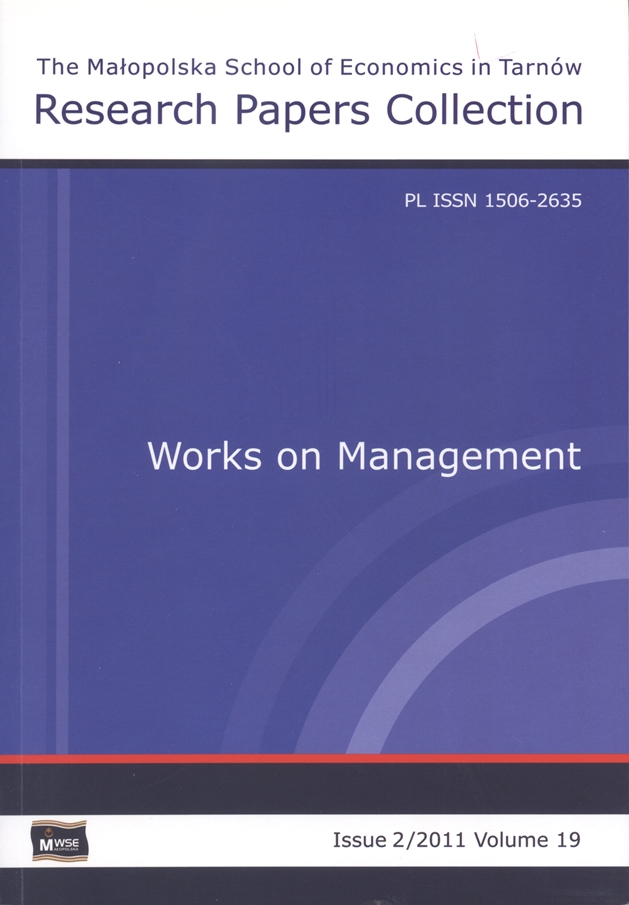Abstract
This paper analyses the values held by Protestants and Catholics residing in the countries of modern Europe. The objective was to find out whether there are significant differences in the values subscribed to by these two groups and whether there are any areas relevant to economic development. The study showed the existence of differences and the areas in which they are present have been classified into five major groups: the values associated with perception of problems in occupational life, life in the public area, life in the private area, and personal well-being, as well as values related to trust and religion. The further part of the paper analyses the values in each selected area by placing them in the context of their importance for economic development. The last part of the paper proposes a model of culture as either conducive to development or inhibiting it, the model based on the values characteristic of the representatives of both religions.
References
Barro R., McCleary R. M. 2003. “Religion and economic growth”. NBER WorkingPapers (Cambridge MA), no. 9682. Available online: http://www.nber.org/papers/w9682.
View in Google Scholar
Czapiński J. 2009. “Polska smuta”. J. Żakowski talks to Prof. J. Czapiński. Polityka, no. 16 (2701), pp. 18-20.
View in Google Scholar
Eliade M. 1999. Sacrum iprofanum. O istocie religijności. Transl. by R. Reszke. Warszawa: Wydawnictwo KR. ISBN 83-86989-39-4.
View in Google Scholar
Fukuyama F. 1997. Zaufanie. Kapitał społeczny a droga do dobrobytu. Transl. by A. and L. Śliwa. Warszawa and Wrocław: Wydawnictwo Naukowe PWN. ISBN 83-01-12488-1.
View in Google Scholar
Fukuyama F. 2000. “Kapitał społeczny”. In: Kultura ma znaczenie: Jak wartości wpływają na rozwój społeczeństw. Ed. L. E. Harrison, S. P. Huntington. Transl. by S. Dymczyk. Poznań: Wydawnictwo Zysk i S-ka. ISBN 83-7298-368-2.
View in Google Scholar
Hofstede G. 2007. Kultury i organizacje: Zaprogramowanie umysłu. Transl. by M. Durska. Warszawa: Polskie Wydawnictwo Ekonomiczne. ISBN 83-208-1685-8.
View in Google Scholar
Matysiak A. 2006. “Negatywny kapitał społeczny”. In: Nowa ekonomia a społeczeństwo. Ed. S. Patrycki. Lublin: Wydawnictwo Katolickiego Uniwersytetu Lubelskiego. ISBN 83-7363-366-9.
View in Google Scholar
Putnam D. R. 2001. Better together: Report of the Saguro Seminar. Cambridge MA: John F. Kennedy School of Government, Harvard University.
View in Google Scholar
Sztaudynger J.J. 2009. “Rodzinny kapitał społeczny a wzrost gospodarczy w Polsce”. Ekono¬mista, no. 2.
View in Google Scholar
Weber M. 1994. Etyka protestancka a duch kapitalizmu. Transl. by J. Miziński. Lublin: Wydawnictwo TEST. ISBN 83-7038-144-8.
View in Google Scholar
World Value Survey. [online, accessed: 2011-08-26]. Available online: http://www.wvsevsdb.com.
View in Google Scholar
© Copyright by Małopolska School of Economics in Tarnów. The articles are available under the Creative Commons Attribution NonCommercial-NoDerivatives 4.0 International License


